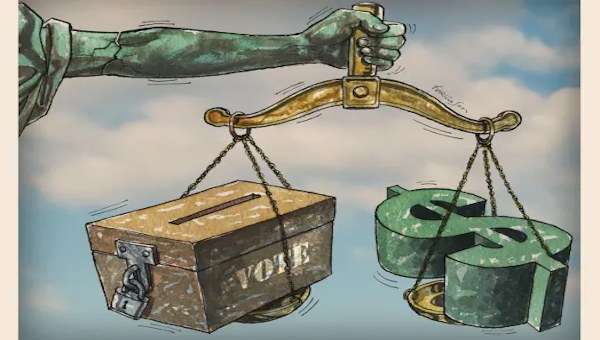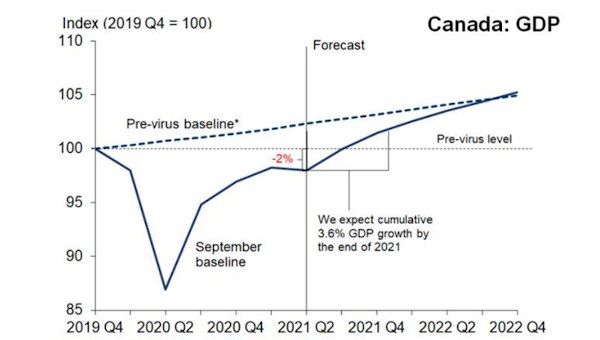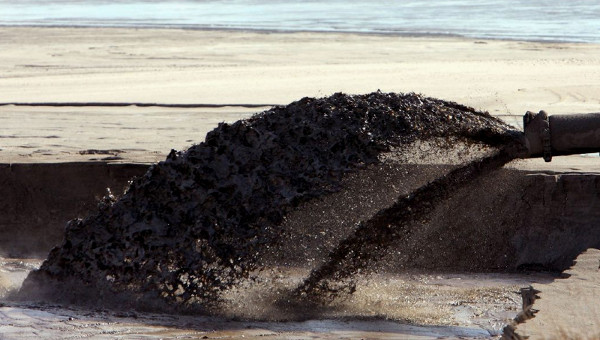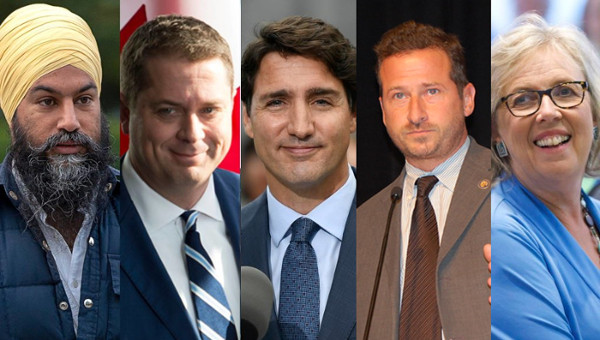The Canadian Election and Palestinian Solidarity
Voting in elections in liberal democracies even at the best of times has always been the most limited of the many forms of political engagement and struggle. In matters of foreign policy, the ballot is even more gestural in that the political hegemony of the dominant classes is critically fused and enforced by a political consensus that stretches from the conservative right through liberalism to the mainstream social democratic left over inter-state relations and international alliances. Nowhere is this consensus more confined and policed by the parliamentary and ideological apparatuses of the state, elite networks, and the capitalist media than with respect to the Middle East and particularly the politics of Israel and the occupation and oppression of the Palestinian people. This has been the importance for the international solidarity movement with Palestine of the Boycott, Divestment, Sanctions (BDS) campaign. It has widened the space in Canada and other states for discussion of the continued Israeli occupation, house demolitions, apartheid practices, and ethnic cleansing of Palestine.
Still, the federal election in Canada allows Palestine solidarity activists to engage in the election around the Israeli occupation and human rights violations and the complicity of the Canadian state, and use the vote as best they can. While having our differences with some of these assessments (and of these assessments as a whole as a form of engagement and political struggle), we present here the recent calls and appraisals from an array of Palestinian groups on the vote in the current Canadian election.
#IVotePalestine: For Freedom, Justice and Equality

In the upcoming Canadian general election scheduled for October 21, 2019, we commit to vote for candidates and parties that:
- Support Palestinian human and national rights including the inalienable right to self-determination.
- Oppose Israeli ethnic cleansing, war crimes and apartheid.
- Recognize the fundamental rights of the Arab-Palestinian citizens of Israel to full equality.
- Respect, protect and promote the rights of Palestinian refugees to return to their homes and properties as stipulated in UN resolution 194.
- Support ending Israeli occupation and colonization of all Arab lands and dismantling the Wall.
- Oppose Canadian tax-deductible status for the Jewish National Fund JNF, HESEG Foundation and all Zionist organizations that are disguised as charities while supporting the Israeli military and settlements.
- Recognize the rights of Canadians to support the Boycott Divestment and Sanctions BDS movement as a non-violent strategy to force Israel to abide by UN resolutions and all international humanitarian laws, and
- Oppose condemning or criminalizing people or organizations who support the BDS Movement.
Here are the hosts and endorsers of the campaign:
- Alliance of Concerned Jewish Canadians
- Canada Palestine Association
- Canadian BDS Coalition
- Coalition against Israeli Apartheid, Victoria
- Independent Jewish Voices
- Independent Jewish Voices – Winnipeg
- Just Peace Advocates/Mouvement Pour Une Paix Juste
- Justice for Palestinians, Calgary
- Oakville Palestinian Rights Association OPRA
- OPIRG Guelph
- Palestine Just Trade
- Palestine Solidarity Working Group (Sudbury)
- Palestinian and Jewish Unity (Montreal)
- Palestinian Canadian Congress
- Regina Peace Council
- Socialist Action
- Peace Alliance Winnipeg
- United for Palestine – Toronto/GTA •
Canada’s Main Parties Get Failing Grades on Palestine
Canadian political parties have launched their campaigns for the country’s 21 October general election. But voters looking to cast a ballot in support of Palestinian rights will be out of luck when it comes to the main parties – Prime Minister Justin Trudeau’s Liberals, and the main opposition Conservatives.
Canadians for Justice and Peace in the Middle East has published a voters guide grading party positions on Palestine and other regional issues.
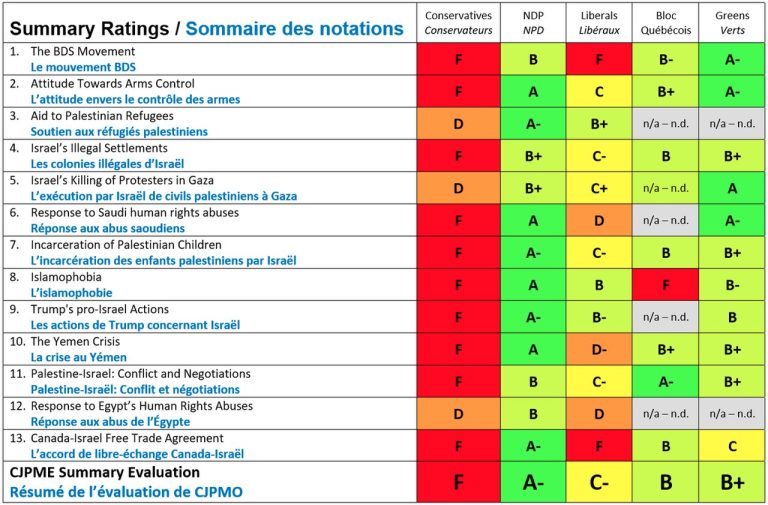
The Conservatives come out worst, with an F overall and failing grades in 10 out of 13 policy areas.
CJPME gives the centrist New Democratic Party an A-, the best overall grade, while the Greens get a B+.
Low Grades
The Liberals manage a C- overall, but get an F for their position on BDS – the boycott, divestment and sanctions movement for Palestinian rights. The Liberal Party also gets an F on the recently renewed Canada-Israel Free Trade Agreement. The highest grade achieved by the Liberals is a B+, for its position on aid to Palestinian refugees.
But Trudeau’s party gets C grades for its response to Israel’s killing of unarmed protesters in Gaza and Israel’s incarceration of Palestinian children. The Liberals also score lowly D grades for their positions on the war in Yemen, and human rights abuses by Egypt’s military regime and the Saudi monarchy.
At a televised leaders’ debate on Thursday night, Conservative leader Andrew Scheer demonstrated why his party got failing grades on Palestinian rights.
Trudeau skipped the debate.
Positions on BDS
According to Canadians for Justice and Peace in the Middle East, “no Canadian political party fully supports BDS, although the reaction and tone vis-à-vis the movement varies somewhat amongst the parties.” The group says the Liberal and Conservative positions “are the most extreme, falsely equating the BDS movement to a form of anti-Semitism, and condemning Canadians who support nonviolent pressure tactics against Israel.”
CJPME awards the Greens “the highest mark, despite not explicitly endorsing the BDS movement.” The Greens do however “support boycotts, divestment and sanctions against Israel until it respects international law.”
Individual New Democratic Party lawmakers, including leader Jagmeet Singh, “have expressed their willingness to consider economic sanctions against Israel,” according to CJPME. But the NDP as a party “has rejected any type of BDS-related action.”
The Quebec nationalist Bloc Québecois has not taken an explicit position on BDS. But CJPME says that it was able to find BQ statements “supporting the objectives of the BDS movement.”
Pandering
On the eve of the campaign, the Trudeau government announced it was appealing a court decision barring the sale of wines from Israeli settlements in the occupied West Bank labeled as “Made in Israel.” Critics see this decision as pre-election pandering to Israel lobby groups.
The Liberal Party also dropped a parliamentary candidate in Quebec after an Israel lobby group smeared him as an anti-Semite because he criticized Israel.
Meanwhile, despite their relatively favorable score, the Greens have come in for strong criticism from the party’s former justice spokesperson. In 2016 Dimitri Lascaris was fired from that position by Green Party leader Elizabeth May after he signed on to an article supporting BDS.
On Thursday, Lascaris excoriated the Greens after one of their candidates issued an apology for past comments critical of Israel. “Canadian Greens, do you prefer candidates who always stand with oppressed peoples, or do you prefer candidates who throw oppressed peoples under the bus when they consider it politically advantageous to do so?” Lascaris tweeted.
“Elizabeth May is perfectly fine with candidates and MPs exercising freedom of conscience – except when their conscience dictates that they call for Israel to be held accountable for its heinous crimes,” he added.
In 2015, the Liberals regained power from the Conservatives in a landslide. But Trudeau’s scandal-hit government is facing a tough battle to retain its parliamentary majority.
Opinion polls currently put the Liberals and Conservatives neck and neck at about 34 per cent each. The NDP is at about 13 per cent and the Greens – who are hoping for a breakthrough – are at 11 per cent. •
This article first published on the The Electronic Intifada.net website.
Canada’s Shameful Record on Palestinian Refugees
Canadian voting pattern on Palestinian Refugees by the Harper and Trudeau Governments at the United Nations (UN) 2013-2018 (organized by subject heading).
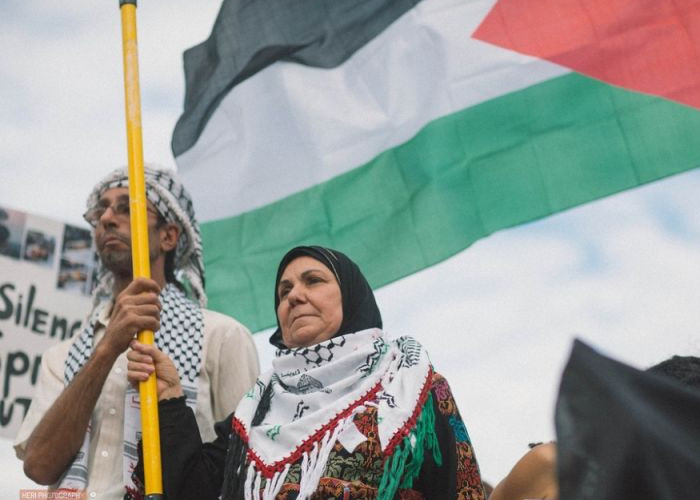
Assistance to Palestine refugees
Canadian vote at the UN (under Harper)
A/RES/68/76 (2013), 173 in favour to 1 against ( Israel) with 8 abstentions including Canada
A/RES/69/86 (2014), 163 in favour to 1 against (Israel) with 10 abstentions including Canada
Canadian vote at the UN (under Trudeau)
A/RES/70/83 (2015), 167 in favour to 1 against (Israel) with 11 abstentions including Canada
A/RES/71/91 (2016), 167 in favour to 1 against (Israel) with 9 abstentions including Canada
A/RES/72/80 (2017), 162 in favour to 1 against (Israel) with 12 abstentions including Canada
A/RES/73/92 (2018), 163 in favour to 2 against (Israel, United States) with 13 abstentions including Canada
Persons displaced as a result of the June 1967 and subsequent hostilities
Canadian vote at the UN (under Harper)
A/RES/68/77 (2013), 170 in favour to 6 against including Canada with 6 abstentions
A/RES/69/87 (2014), 165 in favour to 7 against including Canada with 6 abstention
Canadian vote at the UN (under Trudeau)
A/RES/70/84 (2015), 164 in favour to 7 against including Canada with 7 abstentions
A/RES/71/92 (2016), 166 in favour to 6 against including Canada with 6 abstentions
A/RES/72/81 (2017), 158 in favour to 7 against including Canada with 10 abstentions
A/RES/73/93 (2018), 155 in favour to 6 against including Canada with 13 abstentions
Operations of the United Nations Relief and Works Agency for Palestine Refugees in the Near East
Canadian vote at the UN (under Harper)
A/RES/68/78 (2013), 170 in favour to 6 against including Canada with 6 abstentions
A/RES/69/88 (2014), 166 in favour to 6 against including Canada with 6 abstentions
Canadian vote at the UN (under Trudeau)
A/RES/70/85 (2015), 169 in favour to 6 against including Canada with 5 abstentions
A/RES/71/93 (2016), 167 votes in favour to 6 against including Canada with 5 abstentions
A/RES/72/82 (2017), 162 in favour to 6 against including Canada with 7 abstentions
A/RES/73/94 (2018), 159 in favour to 5 against including Canada with 12 abstentions
Palestine refugees’ properties and their revenues
Canadian vote at the UN (under Harper)
A/RES/68/79 (2013), 172 in favour to 6 against including Canada with 5 abstentions
A/RES/69/89 (2014), 165 in favour to 7 against including Canada with 6 abstentions
Canadian vote at the UN (under Trudeau)
A/RES/70/86 (2015), 167 in favour to 7 against including Canada with 4 abstentions
A/RES/71/94 (2016), 165 in favour to 7 against including Canada with 5 abstentions
A/RES/72/83 (2017), 159 in favour to 7 against including Canada with 9 abstentions
A/RES/73/95 (2018), 156 in favour to 6 against including Canada with 14 abstentions •
Source: cpavancouver.org.


